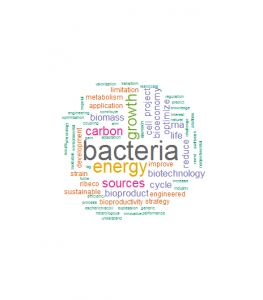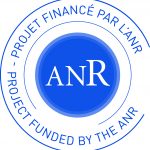Improving the performance of microbial platforms to transform biomass into bioproducts is crucial for the development of sustainable and economically relevant biotechnological processes. Metabolic engineering to optimize expression of native or heterologous pathways often leads to significant energy-limitation, which reduces cell growth and product productivity. The challenge of the RIB-ECO project is to improve microbial energy efficiency through RIBonucleotide ECOnomy for applications in biotechnology. Our aim is to reduce the energy-dissipating RNA life cycle and to reallocate this energy saved towards cell growth and end-product formation using biomass-derived carbon sources. This  approach provides a novel integrated vision of microbial physiology, coupling regulation of RNA life-cycle and metabolism. Knowledge gained will allow us to understand and to predict the adaptation of microbes to environmental changes and propose innovative strategies for strain optimization. The expected results of the project are engineered microbes with accelerated growth and productivity, and reduced lag phase when growing on non-preferential carbon sources. In these optimized microbes, the energetic limitation of growth will be reduced by modulating the futile RNA life cycle. The project will be exemplified in Escherichia coli bacterial cells and applied to the valorization of vegetal biomass-derived carbon sources. Optimization of microbial energetics is a generic strategy, relevant to any microorganism of industrial interest (natural and engineered strains) and to any other carbon sources. Increase the economical sustainability of the biotechnology sector will contribute to the bioeconomy development.
approach provides a novel integrated vision of microbial physiology, coupling regulation of RNA life-cycle and metabolism. Knowledge gained will allow us to understand and to predict the adaptation of microbes to environmental changes and propose innovative strategies for strain optimization. The expected results of the project are engineered microbes with accelerated growth and productivity, and reduced lag phase when growing on non-preferential carbon sources. In these optimized microbes, the energetic limitation of growth will be reduced by modulating the futile RNA life cycle. The project will be exemplified in Escherichia coli bacterial cells and applied to the valorization of vegetal biomass-derived carbon sources. Optimization of microbial energetics is a generic strategy, relevant to any microorganism of industrial interest (natural and engineered strains) and to any other carbon sources. Increase the economical sustainability of the biotechnology sector will contribute to the bioeconomy development.
Engineering RNA life cycle to optimize economy of microbial energy: application to the bioconversion of biomass-derived carbon sources



